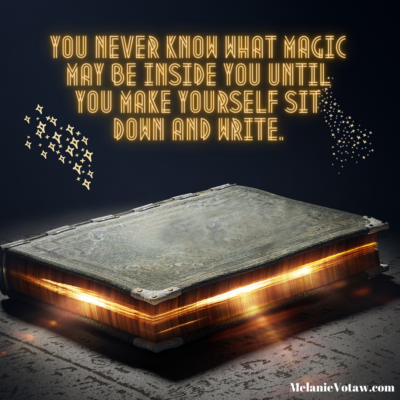5 Insider Secrets to Make Your Self-Help Book a Success

Check out my main website for more information about my book coaching, editing, and ghostwriting services.
The self-help books you love are successful largely because they adhere to the top 5 insider secrets I’m about to share with you. These aren’t “secrets” to professionals in the publishing industry, but in my experience, new writers (or those who haven’t yet worked with professionals) are mostly unaware of them.
If you examine the work of your favorite self-help authors carefully, you’ll see that, at least 99.9% of the time, they include the following:
- Give your book a clear title and subtitle.
While enigmatic titles like The Sun Also Rises or A Handful of Dust can easily sell a novel or a memoir, self-help book titles sell best when they’re clear. Readers want to know exactly what they’re getting.
In fact, most teaching/self-help book titles include a promise to the reader. Here are some examples:
- Stephen Covey’s The 7 Habits of Highly Effective People: Powerful Lessons in Personal Change. The promise is that you’ll learn seven habits to help you become a highly effective person. How will you do it? Through learning how to instigate personal change.
- Nancy Levin’s book Worthy is unusual in that it has a one-word title that, by itself, isn’t clear. But the subtitle makes it crystal: Boost Your Self-Worth to Grow Your Net Worth. You know exactly what you’re going to get from that book.
- Here’s one more: Louise Hay’s iconic You Can Heal Your Life. This is a rare example of a title that’s so good, it doesn’t even need a subtitle. The clear promise is stated in just five words! Boom! These days, however, you almost always need a subtitle. Few titles are original enough or clear enough to work on their own. If you come up with one, let me know, and I’ll buy you dinner!
Note that there are occasional exceptions to this rule about clear titles and subtitles, but generally only when the author is very well-known. Famous authors can get away with titles that aren’t 100% clear because their name alone will sell books. For the majority of self-help authors, though (and that includes you and me), clarity is king!
- Tell personal stories in your book.
 Many authors I know are resistant to including personal stories in their books. They simply want to teach. While this worked in the books of the past, today’s reader loses interest quickly, especially if the writing is dry. Straight teaching in a book starts to sound like a school lecture, and people simply tune out.
Many authors I know are resistant to including personal stories in their books. They simply want to teach. While this worked in the books of the past, today’s reader loses interest quickly, especially if the writing is dry. Straight teaching in a book starts to sound like a school lecture, and people simply tune out.
That’s where stories come in. They are among the best ways to keep readers engaged, as well as illustrate your lessons. We learn more easily when we read about a lesson in action. Plus, we’re hard-wired to love stories. Why else would TV and movies make so much money?
It’s true that you can tell client stories in your book rather than disclose your own personal life, but here’s why it’s better to tell at least some of your own stories: If you want to write more books, you’ll be more likely to build a fan base if your readers get to know you—both your triumphs and your vulnerabilities. They want to understand who you are so that they can relate to you, identify with you, and trust you.
So most of today’s successful self-help authors include the personal touch to both connect with their readers and better illustrate what they’re teaching.
- Make sure every word in your book keeps your target readers in mind.
Many of the beginning writers I’ve worked with are seasoned Julia Cameron fans, so they’ve spent years faithfully writing their Morning Pages from The Artist’s Way. I LOVE Morning Pages, but they aren’t the same thing as a book.
Your Morning Pages or your journal are written primarily for you. They’re cathartic and a great way to discover what’s going on inside you.
A book, however, has to be written for the readers you want to target. That doesn’t mean you have to “sell out” and write a book you don’t love, but it does mean that your book should serve the needs of your reader.
After all, you’re writing your book to help people, right? Well, the only way to do that is to keep them in mind every step of the way.
You may be thinking: “But Melanie, you just told me to write stories about myself in my book!” Yes, I did. But even your personal stories need to be geared toward your reader. In fact, that’s how you choose the right stories from your life to include. Which ones will truly illustrate the points you’re trying to make so that your reader really gets it?
Bottom line: The reader is paramount.

- Structure your book carefully!
Book structure is—without a shadow of a doubt—the absolute #1 (I mean the BIGGEST) problem that authors face when they sit down to write. It can feel like you’re trying to put together one of those puzzles with thousands of tiny pieces, and they all seem to be in the same color!
But I can’t stress the importance of book structure enough. Every single great book you’ve read has been painstakingly put together so that each chapter flows from one to the next in a logical and clear fashion. It’s the only way readers can take in the information, understand it fully, and apply it to their lives.
If you aren’t working with a pro to help you finish your book, my best advice is to study the structure of at least two of your favorite contemporary self-help books. How are they put together? Note the logic of how the chapters flow from one to another.
Then, look at the structure of each chapter. Are there subheadings? Have they included exercises or boxes to set off certain parts of the text? How does one topic flow into the next?
It may seem like a lot of work to think so intently about structure (because it is), but it’s vital to the success of your book.
- Keep your book cohesive and laser-focused.
 Speaking of structure and clarity, books that are clear are also cohesive and laser-focused. In other words, they don’t ramble. They don’t include topics that are peripheral to the book’s core message.
Speaking of structure and clarity, books that are clear are also cohesive and laser-focused. In other words, they don’t ramble. They don’t include topics that are peripheral to the book’s core message.
Here’s an example: You’re writing a book about financial freedom, in which you tell some stories about how your clients’ relationships have infringed on that freedom. You then find yourself writing an entire section about communication in relationships. Hmmm… While you might want to touch on communication with regard to financial freedom, the topic of communication in general is peripheral to your book’s core message.
But…but you really love this section about communication! It will be very helpful to your readers! Can’t you keep it? Can’t you, huh?
Only you and your editor can make the final determination, but there’s a good chance it will need to be cut. For a long time, writers have called this process “killing your darlings.” It means you have to sacrifice the topics, sections, paragraphs, and sentences that you love but which don’t belong in this particular book. You can stash them in a file and include them in another book or perhaps an upcoming blog post, but for this book? They’ve gotta go!
If you take a good look at the self-help books you love, you’ll see that they stay laser-focused on their topic. Without that focus, readers become confused and lose their own focus. Guess what happens when readers lose focus! They fall asleep and never finish your book.
And the truth is that it isn’t enough for a reader to buy your book. You want them to finish it because that’s when they’ll recommend it to someone else. That’s when they’ll think, “I can’t wait for the next book by this writer.”
Have you joined my Facebook Community yet? If not, please hop on over for lots of great information, motivation, and the opportunity to ask me questions.
Need help with your book? Read more about me and my services.
Copyright © 2018 melanievotaw.com
